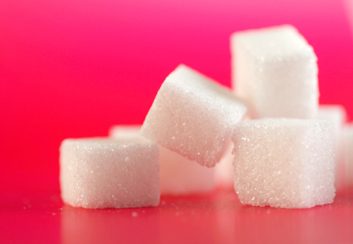
1. Sugary food
Sugar sends the bacteria in your mouth into a feeding frenzy, producing acids that damage your teeth and lead to decay. But if you’re an average Canadian, you’re already eating 40 kg of sugar in a year.
Solution: Realistically, most every food has some form of sugar and if you cut every food containing sugar from your diet, you’d be missing out on important nutrients. However, what you can do to improve your oral health is reduce-or eliminate-foods containing added sugars, including glucose, honey and molasses.
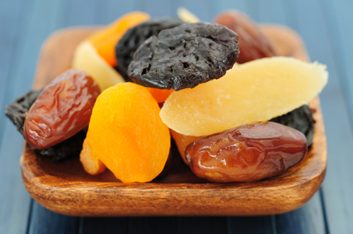
2. Sticky foods
Foods that are chewy and sticky are more likely to stay on your teeth longer and cause decay. Even after you rinse with water or brush your teeth, sticky particles can be left behind. Toffee and sugary gum are no-brainer baddies. But even something that sounds healthy, such as dried fruit, can contribute to decay if it hangs out long enough on the surface of your teeth.
Solution: Try to eat sticky foods as part of a main meal, when your extra saliva will help wash it away, not as a snack you nibble on throughout the day. “The issue is not only what you’re eating, but the frequency too,” says Dr. Euan Swan, Dental Programs Manager at the Canadian Dental Association in Ottawa.
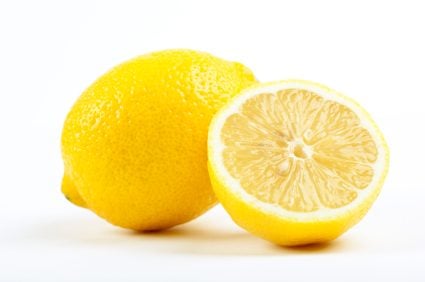
3. Acidic foods
Any food or drink high in acid-think tomatoes, citrus fruits, pickles, fruit juice, red wine or pop-can raise the level of acid in your mouth. Over time, that can eat away at your tooth enamel. Think you’ve got a good handle on which foods are high in acid? It’s not as obvious as it might seem; some breakfast cereals, breads and even certain fish can be classified as acidic.
Solution: “Everything in moderation,” says Swan. “I wouldn’t want to see soccer teams moving away from orange slices at half-time.” (Just don’t go at it all day long!) Drinking and rinsing with water or chewing sugarless gum after eating something acidic can help wash away acid, or stimulate saliva to neutralize it.
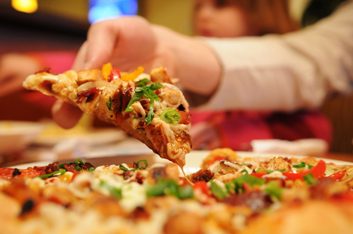
4. Foods low in nutritional value
An occasional junk-food treat probably isn’t going to harm you. But if your diet consists largely of nutritionally poor foods, your oral health is bound to suffer. That’s because your immune system needs a balance of minerals and vitamins in order to fight infection. Some research shows that if you aren’t eating a nutritious diet, you’re more vulnerable to tooth decay and gum disease.
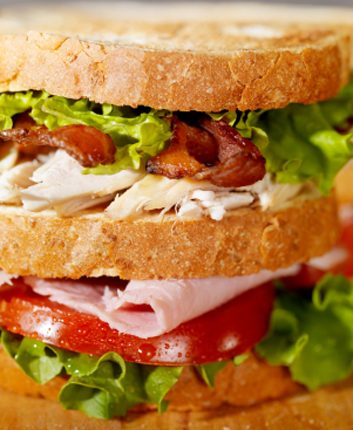
5. Supersized foods
Sure, certain foods can “rot your teeth.” But did you know that some can actually injure your jaw? A dentistry professor at Taiwan’s National Yang-Ming University made headlines around the world this summer when he said that patients with a fondness for fast food are coming in with a condition called temporomandibular joint dysfunction. This disorder of the jaw causes facial pain and problems opening the mouth. How is it related to food? According to reported statements by Dr. Ming-Lun Hsu, oversized hamburgers are causing diners to open their mouths wider than they’re meant to.
The takeaway message: Foods that are more than about four centimetres in height may be too gigantic for your jaw to handle.
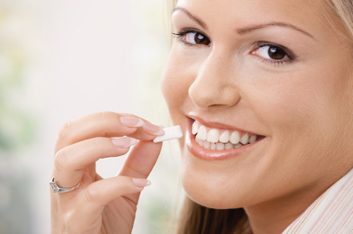
Keep in mind when you eat
Remember, when you eat can be just as important as what you eat. Munching all day long means your mouth is exposed to more sugars and acids than it would be if these foods were eaten as part of a meal. “If I’m having a meal and I order a dessert, which I quite enjoy, people joke, ‘Oh, you’re a dentist and you’re eating sugary icing on a chocolate cake!'” says Swan. “But I’m eating it as part of my meal, and afterwards I’m going to rinse my mouth with water or chew a piece of sugarless gum. If I brought it to my desk and nibbled it all afternoon, it’s a different matter.”
Related:
• 5 foods that will destroy your teeth
• What to eat for whiter teeth
• 5 questions to always ask your dentist
